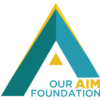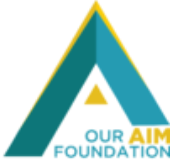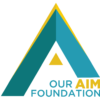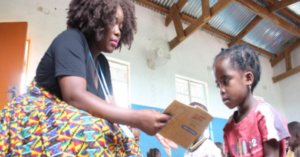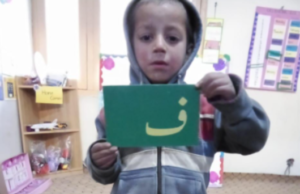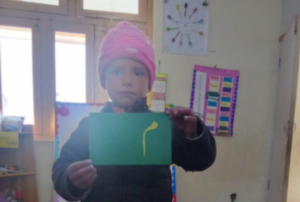Sewing a New Future: Women’s Entrepreneurship in Rural Africa
Women in many parts of Africa face significant challenges in their quest for financial independence and personal growth. According to the World Bank, nearly 50% of women in sub-Saharan Africa live below the poverty line, and only about 62% participate in the labor force compared to 75% of men. Limited access to education and vocational training restricts their opportunities for employment and economic advancement. In rural areas, these issues are compounded by long distances to training centers and a lack of resources.
Grace Alfred, a 25-year-old woman from Guzani village in the Mchinji District, exemplifies these struggles. Grace holds the role of breadwinner in the family while continuing to be a caring mother. She heard about the tailoring program at Tongozala Holistic Community Centre (HCC) and immediately decided to join, despite having no prior background in sewing.
Every day, Grace walks 5 kilometers to attend her sewing classes. “Most of the time I feel tired because of the long distances we cover daily,” she admits. The physical toll of this daily commute is significant, yet Grace remains focused on her education. Her drive to become financially independent keeps her motivated, and she views the program as her path forward.
The training at Tongozala HCC has provided Grace with valuable skills and knowledge in sewing. Although she is still learning, her progress has been noteworthy. “I had no experience with sewing, but now I am able to sew some clothes, which is making me self-confident,” Grace shares. She has learned to cut and sew different patterns and designs and can now make dresses, short trousers, and school uniforms for her child.
Grace’s family has been a pillar of support throughout her training. They see the potential for her to become a successful tailor, which would benefit not only their household but the entire village. “My family has always supported my dreams. They see a future entrepreneur in me, which will ease the burden in our village,” she says. Grace has already started applying her new skills by mending clothes for her relatives, demonstrating her progress and gaining their trust in her abilities.
Our Aim Foundation emphasizes the significance of providing resources and opportunities for women to become entrepreneurs, as this leads to profound individual and societal impacts. Economic independence allows women to break free from traditional gender roles and gain control over their own financial destiny. This newfound autonomy boosts their confidence, self-esteem, and overall well-being, creating a positive ripple effect in their personal and professional lives.
Tailoring skills empower women by providing economic independence through entrepreneurial opportunities and employment, encouraging skill development in sewing, pattern cutting, and garment construction. This proficiency enhances their confidence and self-esteem, impacting both their personal lives and community roles positively. Women with these skills often contribute culturally by preserving and adapting traditional crafts, while also offering valuable clothing services within their communities. The flexibility of tailoring as a profession allows women to balance work with household responsibilities, further empowering them economically and socially. Overall, mastering tailoring not only equips women with practical skills but also promotes a sense of empowerment and autonomy, enabling them to thrive financially and contribute meaningfully to their families and societies.
Grace’s story has been an inspiration in the Guzani village. She showed that anyone can overcome difficult circumstances and succeed with determination, hard work and the right opportunities. Grace expresses her gratitude, saying, “I am so joyful for the good gesture that is being provided by Our AIM Foundation for offering free tailoring training to the marginalized communities around Tongozala HCC.” The support from Our Aim Foundation has been crucial in providing these opportunities and empowering women like Grace.
“Grace’s success not only improved her family’s life but also serves as a ray of hope for others in the village, reminding them that they too can create a better future for themselves and their loved ones,” Friendson Phiri adds, the vocational skills training center trainer.
Grace Alfred’s story is just one example of how empowerment and vocational training can transform lives. With your help, we can continue to provide vital resources and opportunities to women in marginalized communities across Africa. Donate now!
